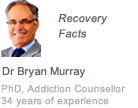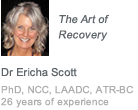Codeine Addiction
Codeine addiction is often referred to as the ‘Silent Addiction’ because most addicts are unaware of their dependency until such time as the condition or chronic pain that it was being taken for is resolved. Only when the addict stops taking codeine as a matter of course and withdrawal sets in, do they realize there is a problem. Commonly prescribed as a general painkiller for chronic conditions, codeine is also available over the counter in some medicines and often users or addicts do not know that codeine is an active constituent of their preferred household medication. Derived from opium and morphine, codeine has severe addictive qualities and a large constituency of unwitting codeine addicts has grown over time.
Codeine – origins and legal status
Codeine, chemically O-methylmorphine, is a naturally occurring element of the poppy plant. It is most commonly found in the iranian poppy but it can be extracted from most opium poppy crops in one form or another. Codeine was first isolated in France in 1832, some 20 years after morphine, by the noted chemist Pierre Robiquet while he was working on improving the process for isolating the morphine opiate. It was immediately recognized as being safer, in small doses, than morphine and was commonly prepared for use as a mild painkiller or analgesic and to treat diahorrea and headaches.
Codeine has become the most widely used opiate worldwide. It is a common ingredient in many over the counter household pain relievers such as ibuprofen and Tylenol as well as cough syrups and diarrhea medications. It is present in so many analgesic medications that if a study were to be conducted it may be found to be the most widely used drug in all its forms in the world. Since around 1973 codeine has been synthesized from coal-tar and petroleum due to shortages of natural poppy crops (a by product of the war on drugs).
Codeine has a complex legal status because of the huge number of medications and formulations it is used in, but it is legally and commonly available on the internet through quite legitimate online pharmacies, over the counter at pharmacists and drugstores and preparations containing codeine can even be found on supermarket shelves.
Codeine addiction: usage and effects
There are many legitimate uses for codeine and these include:
- Relieves pain in treatment of headaches, menstrual cramps, toothache and back pain
- Relieves anxiety and can reduce paranoiac symptoms
- Reduces the cough reflex and mucous production
Clearly, codeine is very popular and is used legitimately for a wide-ranging set of mild conditions in many households. But illicit use is significant simply because codeine is so easy to get. Some common abuses are:
- Heroin addicts will often take codeine tablets and liquid to stave off the symptoms of withdrawal from heroin
- Certain cough medicines can be boiled to extract the residue of pure codeine that can then be injected for a heroin-like high
- Codeine tablets can be crushed and sniffed to get an immediate effect although significant quantities are needed
Unfortunately the legal and common use of codeine has created large groups of people who have developed a tolerance for the drug and suffer negative symptoms when they stop taking it. As with all opiates, long term use of codeine has a number of undesirable effects such as:
- Reduction in energy
- Attention disorders
- Breathing disorders (overuse of Codeine can lead to cessation of breathing)
- Reduction in sexual activity and libido
- Constipation
- High blood pressure
- Urinary retention and bloating
Withdrawal symptoms include:
- Painful cramps and muscle spasms
- Itching and sweating
- Anxiety
- Diahorrea
- Runny nose and sneezing
Treating codeine addicts
Most codeine addicts are non-recreational users and their state of mind at the point of withdrawal is likely to be highly confused and fearful. Aside from the physical aspects of withdrawal those who discover, to their consternation and surprise that they have a codeine addiction, will need support and assistance to recover from the emotional turmoil of discovering that they are unwilling addicts. There are a number of support techniques and therapies that are widely available and that have been proven to help with all aspects of recovering from codeine addiction:
- Counseling
- Peer Group contacts and discussion
- Exercise to help build the body and flush any remaining traces of the drug
- Acupuncture to aid in stress relief
- Acupressure
- Massage
- Yoga
- Touch Therapy
- Aroma Therapy
A sympathetic and comforting environment will help the unwitting codeine addict to come to terms with what has happened, accept that it is not something they can or should blame themselves for and rediscover both their vitality and emotional peace. Addicts who habitually abuse codeine when they are dealing with the problems that their primary addiction can present them will need a full detox; rehab and recovery programme to achieve withdrawal, cleanse their bodies of stubborn toxins and residues and tackle the full admission of their addictions. Holistic approaches work for both groups of codeine addicts and the continued support of family and friends is important to their sustained recovery.












